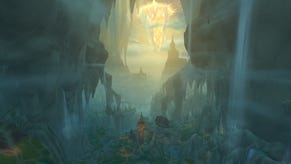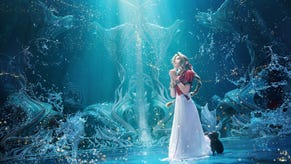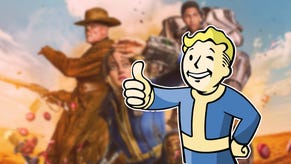When Bad Isn't Bad
Have you ever played and absolutely adored a game that press and public alike seemed to despise? The USgamer team gives its thoughts on a selection of favorite "underdogs" through the years.
This article first appeared on USgamer, a partner publication of VG247. Some content, such as this article, has been migrated to VG247 for posterity after USgamer's closure - but it has not been edited or further vetted by the VG247 team.
There are thousands of video games out there; far more than one person could reasonably expect to beat in their lifetime. So why on Earth would you want to play something that was received less than positively by press and public alike?
A common criticism of modern triple-A development is that developers don't take enough risks. These games have high production values, a huge degree of polish and demonstrate the very best that the medium has to offer. But sometimes they can feel derivative, uninteresting, soulless; publishers unwilling to take a risk on things as seemingly innocuous as a female protagonist, unconventional play mechanics or a story that tackles controversial themes can sometimes stifle creativity, leaving it up to the underdogs of the industry to try bold experiments.
These bold experiments aren't always successful, but the flawed games that are the product of such creative efforts can often be considerably more interesting than a triple-A title polished to a fine sheen. And yet there are many people out there who won't even consider the possibility of trying them when they see those sub-70 Metacritic scores. That's a real shame.
I asked the rest of the USgamer team what their favorite "bad" games from over the years were, and got some intriguing answers back. I'd love to hear what some of your favorite "bad" games are, too.
Jeremy Parish, Senior Editor
SaGa Frontier
I feel sorry for SaGa Frontier. It's an interesting little game that came into the world with all the cards stacked against it. For starters, despite it being the seventh entry in a series, no one knew what to expect of it here in the States; we'd only seen half its predecessors, and those arrived hidden under the name "Final Fantasy Legend." Worse, it was the first classic-style Squaresoft RPG to arrive in the wake of Final Fantasy VII, meaning a whole lot of people were very excited to play another sweeping, cinematic masterpiece of an RPG… which SaGa Frontier very much wasn't. But the biggest problem with SaGa Frontier? It wasn't finished.
SaGa Frontier kicked off a whole string of Square RPGs that were entirely too ambitious for their own good, and coming after the epic FFVII (whose American release benefited from considerable tweaking over the Japanese version), it just felt rushed and sloppy. Players could play through overlapping yet independent scenarios for seven different characters, self-contained mini-RPGs ranging from five to 20 hours long; the original intention was to bring the whole game together with an eighth scenario belonging to a character named Fuse, but that never happened. And so it all feels disjointed and rushed.
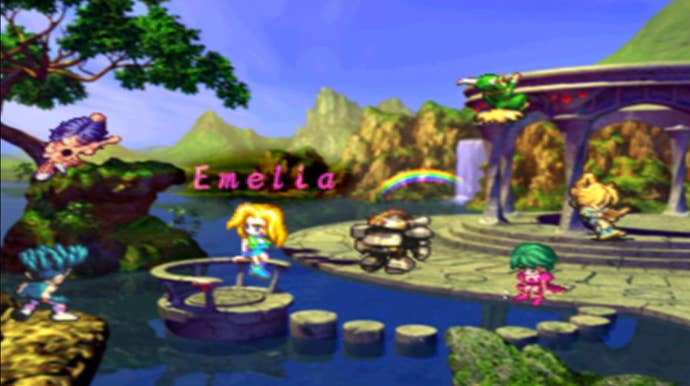
It doesn't help that the mechanics of the SaGa series are, by nature, super super weird and unintuitive. For instance, if a character dies in battle, it's OK, because their hit points are backed up by life points. But every hit they take with zero HP subtracts LP, and once LP runs out that character is dead. Forever. You can do combo attacks with different characters, but it's not tidy like Chrono Trigger's combos -- sometimes dudes will hop in to action together if you choose the right combination of skills. And your characters learn new moves seemingly at random, with little light bulbs appearing over their heads after they execute a prerequisite move enough times. There is no indication given in-game for any of this; it just kind of… happens.
But you know, despite how alienating and rough SaGa Frontier was, I really enjoyed it. I'd never played anything quite like it, and its opaque design brought back the sense of mystery and discovery that I'd felt from gaming a decade prior, when everything was a poorly explained attempt to throw random ideas against the wall to see what sticks. With SaGa Frontier receiving universally poor ratings, I wondered at the time if my liking the game said something bad about me. Over time, I've come to realize it simply means I like to see bold game ideas that try hard to chart their own course... even if they don't quite reach the intended destination.
Brendan Sinclair, Contributing Editor
Army of Two: The 40th Day
There are a lot of so-called "bad" games for which I have tremendous affinity: Time Killers, The Incredible Hulk, Earth Defense Force 2017, but I want to talk a bit about Army of Two: The 40th Day. As the middle child in an ultimately irrelevant Electronic Arts shooter franchise, The 40th Day doesn't get much respect. But beyond the blinged-out guns and sex-with-a-panda jokes, the game had an interesting morality system.
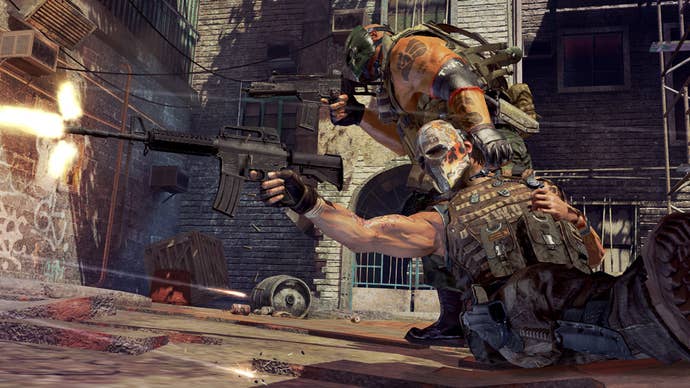
Throughout the game's campaign, players are given choices to make that affect the story. On the surface, the choices generally boil down to the standard good and evil snorefests we see in most games. However, the outcomes of those decisions often play out in unexpected (and sometimes irrelevant) ways, conveyed to the player through cutscenes. The obvious choice may be to save a character, but the cutscenes could show that character then going on to murder multiple other people. It underscores for the player how flimsy the foundations for their life-and-death decisions are, and how even the best intentions can lead to awful consequences.
Mike Williams, Staff Writer
Ninja Blade
From Software is generally a serious company, having developed King's Field, Shadow Tower, Armored Core, Demon's Souls, and Dark Souls over the course of the studio's long history. Every now and then, the company has a psychotic break and creates something that's a little bit crazy. One of the times resulted in Metal Wolf Chaos for Xbox, a game everyone should experience at least once. A second break resulted in Ninja Blade for Xbox 360 and later PC.
On the surface, the game is a clone of Team Ninja's Ninja Gaiden revival mixed with a bit of Capcom's Resident Evil series, a job that it does passably. Ninja Blade hero Ken Ogawa was created with help from Microsoft, but not a shred of originality came from the pairing. No one will play Ninja Blade and leave thinking it has the tightest combat, greatest level design, or most memorable villains.
Where Ninja Blade fails in originality, it excels in insanity. From Software wanted to create a "cinematic action game," but I must assume the only movie the developers had seen was 1983's Hercules starring Lou Ferrigno.
Everything in Ninja Blade has to be there because it's awesome. It's the only explanation. Ogawa carries four different weapons on his back because it's awesome. He does amazing skateboard tricks while surfing on a missile because it's awesome. He hits a wrecking ball like a baseball because it's awesome. Why does Ogawa ride a motorcycle through the sky to shove it down a boss' throat? Because it's goddamn awesome. Every major enemy is defeated in a sequence of QTEs that must been seen to be believed; a cavalcade of pure awesome from beginning to end.
Ninja Blade is by no means a great game, but it's an amazing experience. You can pick it up on Steam for only $19.99.
Olivia Jane, Content Editor
Vegas Stakes
My Dad taught me to play poker when I was five or so, and when I finally got my hands on a SNES in 1998, he thought I'd get a kick out of Vegas Stakes. Not having a huge personal library of games, which included Super Mario World, Pac Man 2: The New Adventures, Super Mario Kart, and the first two Donkey Kong games, Vegas Stakes was a game I actually played. I even beat it once or twice, taking advantage of the restart button whenever I bet everything in blackjack and lost. How else is an eleven year old supposed to make $10 million?
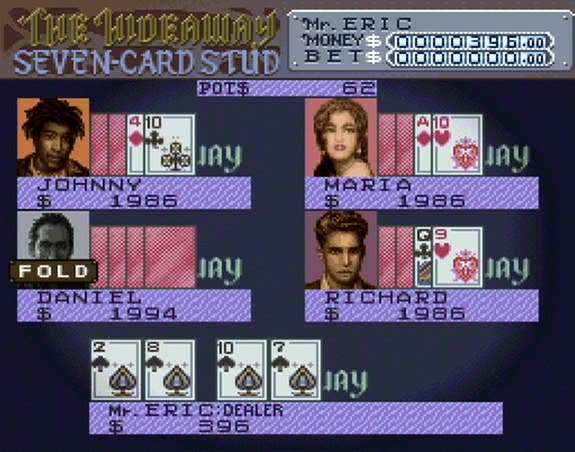
The way the game plays out is pretty simple. You pick one of four characters to play as, all of whom are attractive, and are a mixed bag of ethnicities. You can go to one of four hotel casinos until you make enough to unlock the no-limit casino. Each casino offered blackjack, slots, roulette, and 5-card stud poker. Sometimes people will come up to you and say you've lost your wallet, and at random, you'll either come up on some money or they'll have stolen your wallet. Sometimes the female characters flirt with you. One character looks creepy and I never trusted him with that wallet gag. I spent most of my time at the poker tables.
I knew the game was cheesy when I was a kid. Looking back, it's incredibly dated, including a token black guy. You don't actually get to walk around anywhere because the entire game is one menu after another. But whenever I'd bust, lost all my money, see my character standing outside the strip with his pockets turned out and empty (which is something I would see even if I picked a female character), I'd start it back up and work my way from The Hideaway, a dive casino off the strip where tables were cheap, all the way up to the coveted Laurel Palace, complete with an 8-bit theme that sounds like something you'd sing along to in church.
Pete Davison, News Editor
Nier
Given that my own gaming tastes have drifted well off the "mainstream" path in recent years, there are so many titles I could talk about here, but if I had to pin it down to one favorite supposedly "bad" game, it would absolutely, positively have to be Cavia's Nier.
Nier is the sequel to the ridiculously hard-to-get "ending E" to the PS2 action RPG Drakengard. That peculiar starting point alone makes it worthy of note, but it's far from the only interesting thing about Nier.
Narrative-wise, Nier provides a refreshing change to the usual Japanese role-playing game formula in that you're playing a middle-aged character rather than a fresh-faced teenager. Despite relatively colorful graphics, it's also an incredibly bleak experience; most sidequests end in some form of tragedy, and the story as a whole is not the usual sort of uplifting "let's all save the world with love and happiness!" JRPG formula.
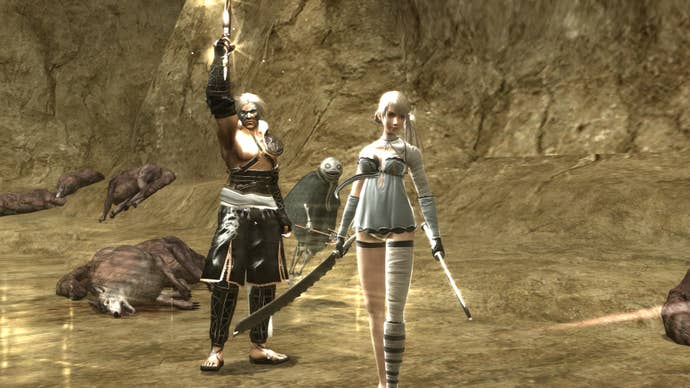
The world in which Nier's story takes place is not a happy one, and I found one of the game's most frequently-criticized elements -- the prevalence of tedious fetch quests -- to actually be firmly in keeping with the game world: the world was in such a state of disarray that everyone had to "muck in" and contribute to making the best of this shattered society, so through completing the various fetch quests throughout the game, you were actually "method acting" the character of Nier to a certain degree. It was supposed to be tedious and emotionally exhausting; that perhaps didn't make for the "best" game, but it certainly made for an emotionally-engaging experience if you were willing to put the time in and put yourself in Nier's shoes.
Aside from the deep, mature story -- including, I think, the only time I've ever seen an intersex character handled sensitively and maturely in a video game, explored to a shockingly intimate degree in one of the best implementations of New Game Plus of all time -- Nier is noteworthy for a number of other reasons. Firstly is the soundtrack, which is possibly one of the finest collections of music you'll ever hear in any medium. Secondly is the incredibly diverse game mechanics that the game occasionally inexplicably flip-flops between: God of War-style combat; text adventure; bullet hell shooter. Thirdly is the sheer amount of effort which has gone into realizing Nier's world, both inside and outside the game. Even if you have no intention of actually playing the game, it's worth having a browse through the fan translation of "Grimoire Nier" -- a document that includes short stories, interviews with the developers and all manner of other fascinating bonus content that sheds a great deal of light on this game's troubled development process.
Fresh_Paprika, Highlighted Community Comment
Yoshi's Story
Well, Shenmue II (on Dreamcast) is one of my favourites. An underappreciated game that should be wildly considered as a masterpiece. But it's more ignored and misunderstood than badly received (especially in America, it got some really great reviews in Europe, where they got the fantastic Dreamcast version), and the horrendous localization it got on Xbox made things worse. So I guess it doesn't count here.
So my pick is Yoshi's Story. It was an adorable, lovely game that had its own unique level clearing goals and progression (though, I agree it was FAR from perfect in that regard). It did the arts-and-crafts look a decade before Littlebigplanet and Kirby's Epic Yarn, and did it beautifully. The world and enemy designs are drop dead gorgeous to this day.
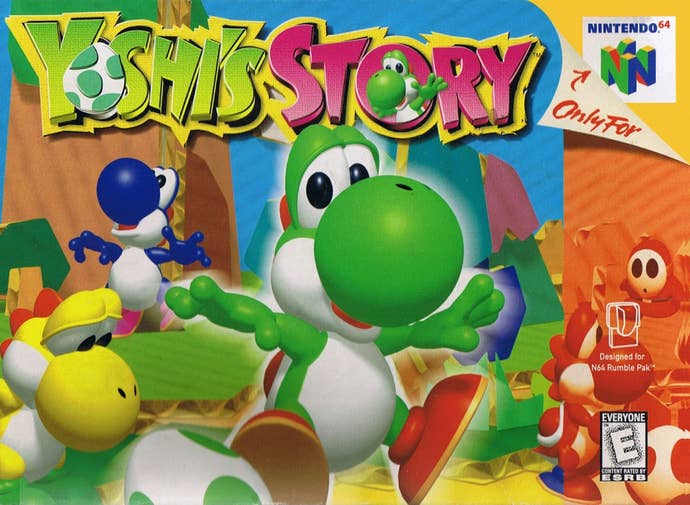
No, it wasn't a Yoshi's Island-caliber masterpiece, but what is? It still saddens me that so many people want to look down on it because it doesn't match up against Yoshi's Island. They're both very different from each other, and Nintendo noticed that when they wrapped it up, so they changed the name from Yoshi's Island 64 to Yoshi's Story. When you look at it as a different take rather than a sequel your expectations should change, but most people only wanted to see Yoshi's Island. It's a lovely, imperfect game that deserves better. Hopefully, its successor Yarn Yoshi will get some love rather than constant scrutiny.
A more recent one would be Resonance of Fate. It was frustrating and featured an incoherent battle system, the plot wasn't particularly well fleshed out, it had many faults. But it also had an original world, original themes, original feel, it did its own thing. This day and age, that's important.
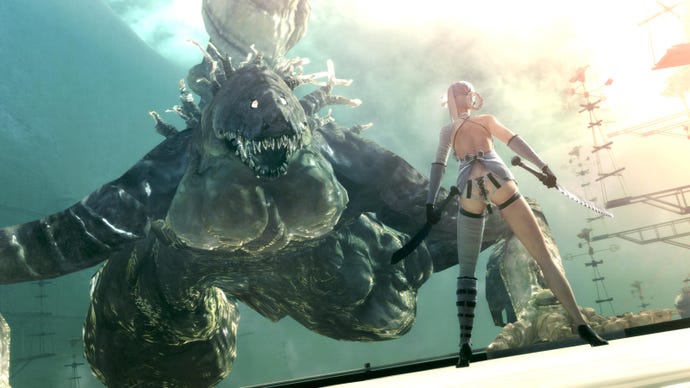

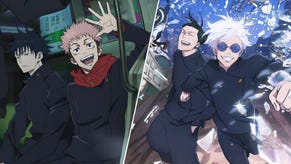
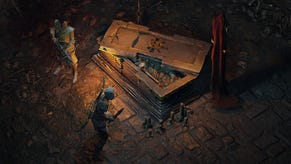
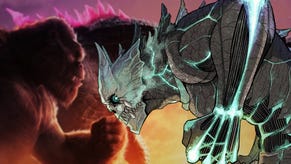
_ddwYK80.png?width=291&height=164&fit=crop&quality=80&format=jpg&auto=webp)
